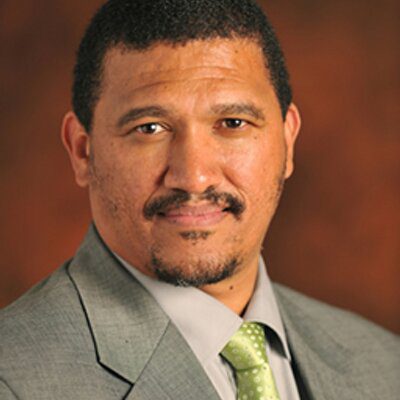Marius Llewellyn Fransman, born on the 15th of August 1969, has charted a significant path through South Africa’s political landscape, transitioning from his early days as an educator to holding various influential political positions. His career has seen him play vital roles both within the Western Cape and on the national stage, reflecting a dedication to public service spanning several decades.
Early Life and Education
Originating from Blackheath in the Cape Flats, Fransman’s leadership qualities were evident from his school days, where he led as the head boy of Bishop Lavis Secondary School, graduating in 1987. His tenure as chairperson of the student representative council highlighted his early engagement in leadership and activism. Pursuing higher education, he secured a Bachelor of Arts and a Higher Diploma in Education from the University of the Western Cape, setting the stage for his initial career as a teacher in Vredendal, where he also began his political journey with the African National Congress (ANC).
Ascension in Politics
Fransman’s political career is marked by his extensive involvement with the ANC, where he contributed in various capacities, including as a regional recruiter and project manager for the Surplus People’s Project. His leadership extended to roles such as the Provincial Deputy Secretary of the ANC’s Western Cape branch and overseeing the party’s election strategies, demonstrating his growing influence within the party.
His tenure in local government as Deputy Mayor and later Mayor of Vredendal Municipality provided him with grassroots experience. Elected to the Western Cape Provincial Parliament in 1999, Fransman was appointed to several key provincial ministerial positions, reflecting his versatility and commitment to social development.
National Influence and Controversies
Fransman’s influence extended to the national arena when he was elected to the National Assembly in 2009, eventually serving as Deputy Minister of International Relations and Cooperation under President Jacob Zuma’s cabinet. His candidacy for the Chairperson of the ANC in the Western Cape saw him adopting strategies that stirred controversy, including accusations of using food parcels and financial promises for electoral gain.
Despite these controversies, his political career continued with his re-election and outspoken support for various political figures and policies, including backing Jacob Zuma’s cabinet reshuffle in 2017. His tenure was not without its challenges, notably facing accusations of sexual assault, which were later resolved outside of court, leading to the lifting of his suspension from the ANC.
Personal Life and New Beginnings
Fransman’s personal life, marked by his marriage to Philida and their two children, reflects his commitment to his faith and community. A proficient speaker of both Afrikaans and English, he remains engaged in the public sphere, most recently announcing the launch of a new political party, the People’s Movement for Change, in November 2023.
Throughout his career, Fransman has been a figure of both leadership and controversy. His journey from the classroom to the corridors of power illustrates the complexities of political life in South Africa, where dedication to public service often intersects with the challenges of governance and personal integrity. His story remains a testament to the enduring impact of political engagement in shaping the nation’s path forward.

















